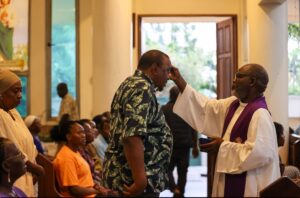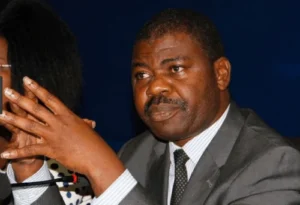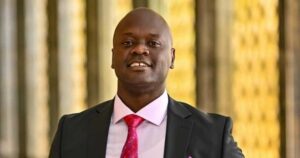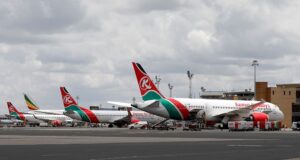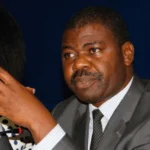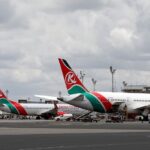By Amit Banka
The movement of people, products, services, and finance through digital channels has seen unprecedented growth in the last decade.
Digitization has brought about connecting economies in Africa like never before. So much so that to be unconnected is to prevent development and growth. The new world demands that everyone join the digital movement.
We live in a world with unpredictable weather conditions, forest fires, and much more. The climate crisis is only going to exacerbate over the coming decades.
A report by World Economic Forum highlighted that $44 trillion of economic value generation – which is about half of the world’s total GDP – is potentially at risk due to businesses depending on nature and its services.
This means there is a real need as well as viability for people and organizations to invest in climate action.
If we focus on building sustainable businesses while reducing our carbon footprint, it can help mitigate the effects of climate change.
The UN’s Sustainable Development Goals can only be achieved when we place Climate Action at the center of every decision-making process.
And that’s why a digital transformation in climate action is the need of the hour. We need to look for digital and tech solutions in nature in this decade of action.
The continent of Africa has been a trailblazer for environmental conservation – with or without technology. And yet, there are marvellous examples of digitization across the continent using modern technologies.
Hluhluwe–Imfolozi in South Africa has developed into a smart park that utilizes the Microsoft Azure cloud to deploy camera traps for monitoring activities. Such preservation techniques have helped save the southern white rhino from extinction.
An organization called Local Ocean Conservation in Kenya, founded by the local community members of Watamu, uses Artificial Intelligence to identify the sea turtle population instead of using the harmful metal tagging method.
With technology and digitization, data collection – which was previously expensive – is now quite feasible. With better data collection, it is easier to keep the wildlife census and protect them, among many other benefits.
Amit Banka is the founder & CEO, WeNaturalists.
And yet, today, Africa struggles with gaining access to many of the digital and technology-driven offerings that the youth across the globe might have access to – chief among them is being connected.
According to Statista, in December 2021, the internet penetration rate in Africa stood at 43.1%. In contrast, the global average internet penetration rate was 66%.
We know that the role of internet penetration is crucial in sectors like education, healthcare, energy, and governance.
I believe it’s just as critical for climate action. Africans have been the custodians of nature since time immemorial. Improving the internet’s infrastructure could go a long way in conserving, protecting and preserving nature.
I believe the world’s future rests on the shoulders of children and youth. As the old proverb goes, “Until the lion learns how to write, every story will glorify the hunter.” For me, empowering people with the right kind of tools can go a long way in bringing about real change.
My interactions with the youth in Africa renewed my faith that they’re eager to contribute to the protection of nature.
And that’s precisely why digital solutions are proving beneficial for them. In addition, access to the internet has helped connect many Africans to conservationists and nature professionals across the world.
Using platforms like https://wenaturalists.com/WeNaturalists, conservationists and naturalists in Africa have built their gated communities. It has also drawn the world’s attention to the nature preservation activities going on in Africa, which were perhaps not as widely known before.
And that’s why we should be focusing on a digital transformation in Africa.
In this digitalized world, empowering the African Youth with digital tools will help them thrive and achieve much more. Take the tourism sector, which is an essential contributor to GDP for Africans.
By marketing its national parks, sanctuaries and wildlife tourist spots to people worldwide on various social media platforms – the internet has played a significant role in attracting visitors.
More visitors mean more revenue generation and employment opportunities for native Africans.
We need to provide opportunities and offer solutions such that nature becomes the primary career choice for youth, especially in Africa. Careers in nature must move beyond weekend activities and tree plantation drives.
Nature is universal – its problems and solutions are global and local at the same time. During my recent visit to Kenya and Tanzania,.
I realized that large corporates have access to several digital tools and technologies. And yet, if small and medium enterprises are provided with the same tools, the impact would be far greater.
Not just that, the cross-pollination of solutions and ideas will be amplified on the ground.
A world with experts, policy-makers, eager learners, determined youth and children – that’s what will save the natural world from the ongoing climate crisis.
Amit Banka is the founder & CEO, WeNaturalists.com, an ecosystem for nature professionals and organizations.







